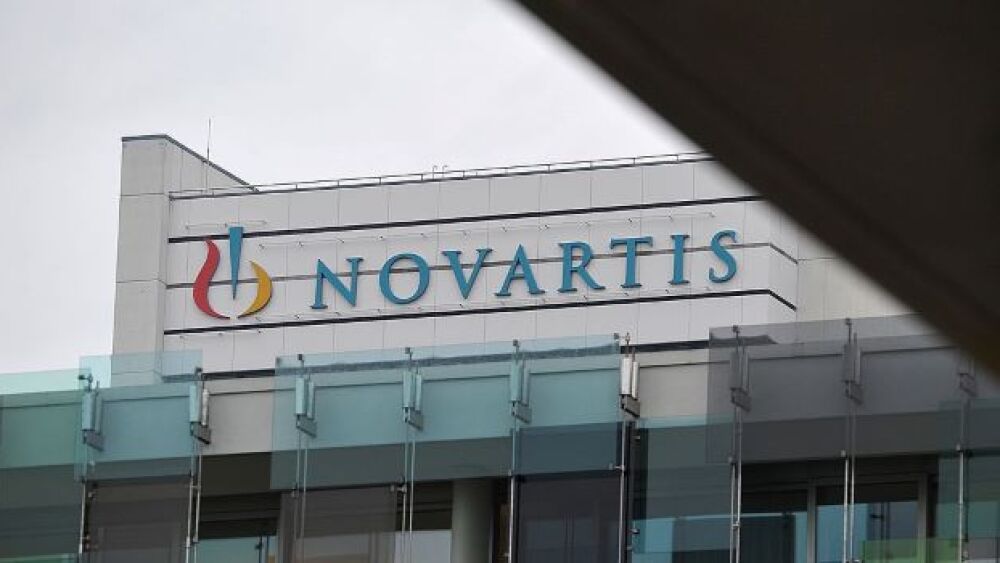Bicycle Therapeutics and Novartis announced Tuesday they have inked a deal worth up to $1.7 billion to discover and develop targeted radioligand therapies in oncology.
Pictured: Novartis logo on building/Harold Cunningham/Getty Images
Bicycle Therapeutics and Novartis announced Tuesday they have inked a deal worth up to $1.7 billion to discover and develop several targeted radioligand therapies in oncology.
The pair will use Bicycle’s proprietary bicyclic peptide (Bicycle) technology to develop what it calls Bicycle radio-conjugates (BRCs) for multiple oncology targets. After the BRCs are developed, Novartis will take over and see them through manufacturing and commercialization.
Under the terms of the deal, Novartis will fund all pre-clinical and clinical development and commercialization activities and pay Bicycle $50 million upfront. Bicycle will then be eligible for milestone payments worth up to $1.7 billion and tiered royalties on Bicycle-based medicines that Novartis commercializes.
The companies didn’t specify which oncology targets they will focus on when developing the BRCs.
Kevin Lee, Ph.D., CEO of Bicycle, said in a statement that the properties of Bicycles make them ideal for developing radiopharmaceutical cancer treatments.
Bicycles are a new class of molecules designed to treat tumors while reducing exposure to healthy tissue. They are synthetic short peptides constrained with small molecule scaffolds, creating two loops meant to make their structure more stable.
This is one of several partnerships Bicycle has inked recently.
On March 15, it announced a research agreement with Owlstone Medical to utilize bicyclic peptides linked with Owlstone’s Exogenous Volatile Organic Compound (EVOC) probes to develop antigen-targeted diagnostic probes.
And in July, Bicycle announced an expansion of an immuno-oncology deal previously made with Roche’s Genentech. Genentech exercised its second option agreement to launch a new program with Bicycle, triggering a $10 million upfront payment to the biotech.
Novartis Fills Pipeline Gaps
Novartis has been busy since the year began, cutting several partnerships to implement a “new strategy focusing on a limited number of therapeutic areas,” the company stated in a Feb. 17 SEC filing.
That SEC filing detailed Novartis’ decision to terminate a deal with Pliant Therapeutics it had entered to gain access to the biotech’s small molecule αvß1 inhibitor for nonalcoholic steatohepatitis (NASH).
One month later, Novartis discontinued another partnership, this time with Sangamo Therapeutics. The partnership was originally created to study gene regulation therapies in neurology.
Novartis wasted no time filling these holes in its pipeline. On March 8, the company announced plans to expand a deal previously inked with Voyager Therapeutics, exercising its option to utilize Voyager’s capsids against two undisclosed neurologic disease targets. This followed a Feb. 22 deal with Dawn Health to develop a platform to remotely monitor patients with chronic diseases.





